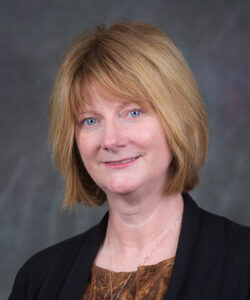When I entered college, “first-generation college student” was a term that I had never heard. I had grown up in a single-parent home and witnessed my mother leave the house by 5 a.m. every weekday to work in a minimum-wage, physically demanding job at the Big Smith factory and come home with her fingers stained blue from sewing back pockets onto jeans and overalls all day. I don’t remember how old I was when I realized her options were limited because she had only a high school diploma. However, I intuitively knew that a college degree would be my means of escaping a similar fate of living “from hand to mouth.”

I was fortunate to be a student worker in my high school’s guidance and counseling office, because that’s where I learned about applying to colleges, taking entrance exams, and applying for scholarships and grants. College was a foreign land and language to my mother, so she was unable to help me navigate it. The counselors in high school helped enough to get me started.
Once I was in college, I floundered a lot. Even though I asked questions of my advisor and other faculty and staff at that college, I didn’t know I wasn’t asking the right questions. I figured things out by trial and error, did well in my classes, graduated in three years, and then after working for a while, I completed my master’s degree. The main thing I wish I had had while I was working on my bachelor’s degree is a mentor, someone who understood where I came from and where I wanted to go and could help me along that path. I may have lacked a mentor, but I had plenty of perseverance.
Valerie Turner, Career Resources Specialist
Career Center
